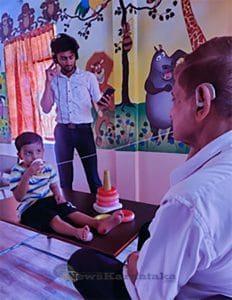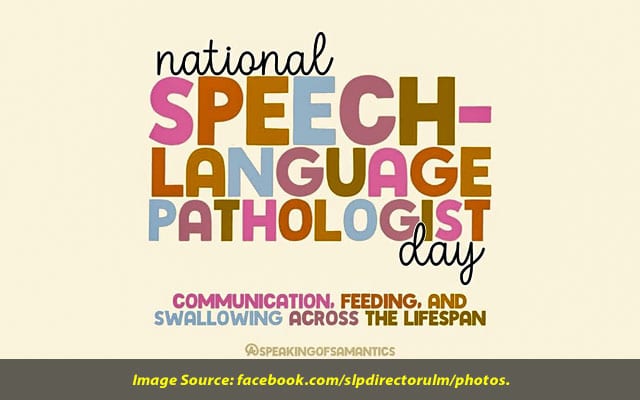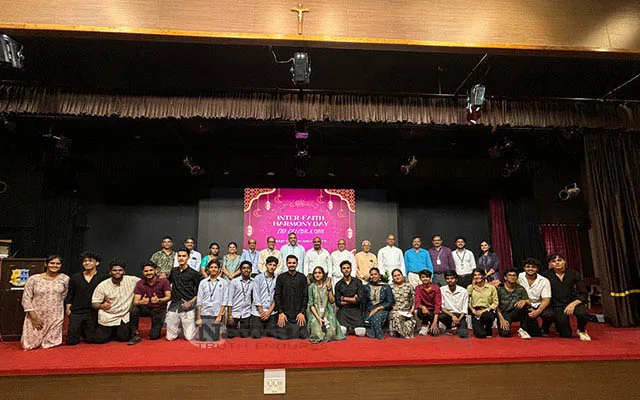National Speech-Language Pathologists Day was on May 18, 2022
Speech and language disorders refer to problems in communication and related areas such as oral motor function. These delays and disorders range from simple sound substitutions to the inability to understand or use language or use the oral-motor mechanism for functional speech and feeding. Some causes of speech and language disorders include hearing loss, neurological disorders, brain injury, mental retardation, drug abuse, physical impairments such as cleft lip or palate, and vocal abuse or misuse. Frequently, however, the cause is unknown.
Speech disorders refer to difficulties producing speech sounds or problems with voice quality. They might be characterized by an interruption in the flow or rhythm of speech, such as stuttering, which is called dysfluency. Speech disorders may be problems with the way sounds are formed, called articulation or phonological disorders, or they may be difficulties with the pitch, volume, or quality of the voice. There may be a combination of several problems. People with speech disorders have trouble using some speech sounds, which can also be a symptom of a delay. They may say “see” when they mean “ski” or they may have trouble using other sounds like “l” or “r.” Listeners may have trouble understanding what someone with a speech disorder is trying to say. People with voice disorders may have trouble with the way their voices sound.
A language disorder is an impairment in the ability to understand and/or use words in context, both verbally and nonverbally. Some characteristics of language disorders include improper use of words and their meanings, inability to express ideas, inappropriate grammatical patterns, reduced vocabulary, and inability to follow directions. One or a combination of these characteristics may occur in children who are affected by language learning disabilities or developmental language delay. Children may hear or see a word but not be able to understand its meaning. They may have trouble getting others to understand what they are trying to communicate.
Adult speech difficulties are also common and come in many forms including stuttering, dysarthria, voice problems, and articulation difficulties. Often with speech therapy and some strategies, many adults can improve their speech and communication skills. There are a number of reasons speech difficulties occur in Adulthood like Accident and injury, Disease and illness, Articulatory difficulties, Dysarthria, Aphasia, Dysfluency, Voice problems
Types of Speech and Language Disorders
- Articulation Disorders: occur when a person cannot correctly pronounce one or more sounds. This may occur as a result of delayed development, poor muscle control, cleft lip/palate, hearing impairment or learning disabilities. Errors of many sounds that form patterns are called phonological disorders. Articulation disorders caused as a result of neurological damage such as stroke or head injury are termed motor speech disorders.
- Voice disorders: include inappropriate pitch, loudness, quality (hoarseness) or total voice loss. It may result from damage to the vocal cords due to surgery, misuse of the voice, (overuse, yelling or singing) disease (cancer of the larynx), or other conditions (cleft palate, cerebral palsy or hearing impairment).
- Fluency disorders: (stuttering) a disruption in the normal flow of the rhythm of speech. Characteristics may include repetition of sounds, syllables, words or phrases, hesitations, prolongations or interjections. Behaviours can vary from person to person.
Speech-Language Pathologists & Audiologists
Speech-language pathologists and audiologists are professionals that identify, evaluate and rehabilitate children and adults who have speech, language or hearing disorders. SLP’s help individuals overcome and prevent communication problems in language, speech, voice and fluency. Audiologists assess the extent of hearing loss, balance as well as other related disorders and recommend appropriate solutions such as hearing aids.
Speech-language pathologists and audiologists work in private practice, child development centres, pre-schools, schools, hospitals, rehabilitation centres, government agencies, health units, industry, colleges, universities and research centres.
Article by:

Dr Usha M, PhD, MSc-SLP, PGDPC, PGDYS.
Assistant Professor, Department of Speech and Hearing, Father Muller College



















